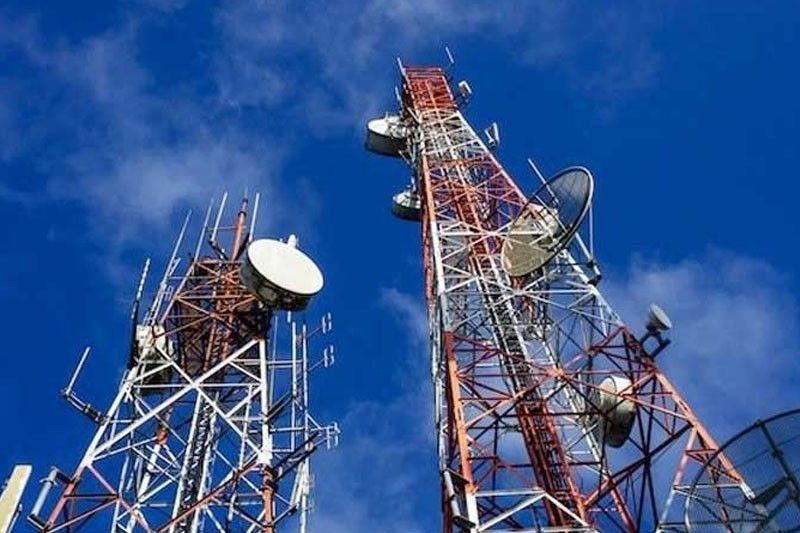Commentary: Telcos and the Public Service Act don't mix

Here are two things we can probably agree on. First, we need to attract more foreign investment in order to generate more jobs and improve our economy. Second, we also need better internet infrastructure, for many reasons, but chief among them is to allow more Filipinos to work and study from home during this pandemic.
That said, the two together raise some serious concerns.
There is a bill currently pending in Congress that seeks amendments to the Public Service Act (PSA). If passed, it would remove foreign ownership restrictions in several sectors, including transportation, broadcasting and telecommunications.
The constitutionality of the law is currently being debated. Still, proponents of the PSA bill argue that allowing more foreign capital into the country would supplement Filipino capital, create jobs, boost competition, and reduce prices of goods and services for Filipino consumers.
According to the Organization for Economic Co-operation and Development's (OECD) ranking, the Philippines has one of the strictest foreign ownership restrictions. As a result, the country has been missing out on a lot of FDI opportunities flowing into the region.
According to industry groups, foreign investments registered in Southeast Asian economies reached an all-time high at US$177 billion last year. But due, in part, to our stricter foreign ownership laws, the Philippines has been passed over by investors for our neighbors Singapore, Vietnam and Thailand.
With the Philippine economy badly hit by the pandemic, calls for the PSA bill's passage have grown stronger. The president's economic team has even identified it as one of its priority measures that it believes could help in the country's economic recovery, create jobs and improve Filipino lives.
But lifting foreign ownership limits in the telecommunications sector, in particular, raises red flags. After all, almost everything we do these days is online. We communicate with each other through chat and email; we share pictures and files through the cloud, shop there, and even go to school and work there. Even before the pandemic, Filipinos already spent more than 10 hours a day on the internet and social media, the most in the entire world.
Now, imagine if a foreign state-controlled company had access to all of that data and were required to report any useful information back to its state intelligence agencies. That's precisely the situation we'll be in if foreign investment restrictions are lifted in the telecommunications sector.
It is crucial that we realize that Chinese companies operate under a different set of rules than your average corporation does. Under Chinese law, Chinese citizens and companies must disclose any information required by their intelligence services. For example, Chinese telecommunications companies could be forced to comply with the Chinese government's request for communication intercepts.
In the US, the Trump administration, citing 'unacceptable' national security risks, has moved to ban China Telecom, a Chinese state-controlled corporation, from serving US clients and send data across American networks.
In a similar move, the British government has also banned the use of high-speed wireless network equipment produced by Chinese technology giant Huawei over fears that Beijing could use the equipment to conduct espionage or disrupt telecommunications in the UK.
Here in the Philippines, however, it seems we are going in the opposite direction. Last year, the Duterte government granted a license to Dito Telecommunity, a consortium of Davao businessman Dennis Uy's Udenna Corporation and China Telecom, to be the country's third telecommunications company.
Earlier this year, the National Telecommunications Commission even extended the deadline for Dito's technical audit to give it more time to build up its network to provide internet speed of 27 megabits per second to cover 37% of the population. Interestingly, the House of Representatives has also quickly approved on third and final reading a measuring renewing Dito's franchise for another 25 years.
Given the preference being given to Dito, and Udenna ties with China Telecom, it is feared that lifting foreign ownership restrictions in the telecommunications sector will surely lead to majority of Filipino’s data in the hands of a 100% Chinese owned telecommunications company.
This becomes all the more concerning, given the recent reports that Dito was allowed to set up cell sites within Philippine military camps. Senior Associate Justice Antonio Carpio likened the move to allowing "China to put a listening device in your conference room", while Sen. Ralph Recto compared it, letting an "electronic Trojan horse" into national security compounds.
Whether it is listening devices or Trojan horses, the government should not allow either anywhere near its military camps.
As pointed out by Justice Carpio, it "is a problem that the Philippines is allowing ChinaTel to install telecom equipment in military camps given the fact that we have a conflict with China".
"We have to be very careful because we are fighting to preserve our territorial maritime zones in the West Philippine Sea, and China is encroaching on our territory," he added.
Amending the PSA may unlock opportunities for our country's economic growth, but let us not hand over the keys to our national security by allowing foreign interests into our camps or to control our telecommunications.
Paco Pangalangan is the executive director of think tank Stratbase ADR Institute.
- Latest




























